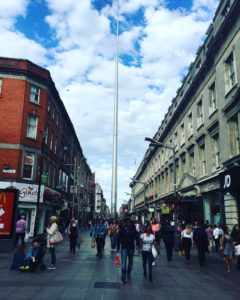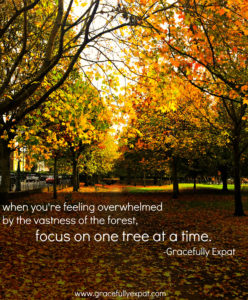I recently listened to a great podcast by the amazingly informative and thorough lads over at www.ChooseFI.com. I’ve enjoyed all their podcasts so far, but the topic of their most recent episode was interesting to me mainly because it didn’t apply to me at all. Let me explain.
The True Cost of Car Ownership
Jonathan and Brad do a terrific job of breaking down the cost of car ownership, and their comprehensive and satisfyingly math-y approach will serve as a really useful resource for a lot of people. They come at the issue from the entirely reasonable assumption that most Americans can’t or won’t give up car ownership altogether. That cars are an expensive, necessary evil. And for the most part, they’re right. But it made me appreciate how my particular life journey has allowed me to bypass car ownership altogether. And it made me wonder how much that choice has saved me over the years.
I have lived without a car for most of my adult life. I couldn’t afford one in high school or university, and then didn’t want the hassle of paying for parking when I lived in a city. I grew up in a remote, rural area and spent many, many boring hours in cars as a child. I think that experience influenced my decision to live car-free once I had the choice to do so.
I haven’t always been naturally inclined towards what might be called Mustachian lifestyle choices, but one thing that’s always been a priority for me has been living close to where I work. That made me something of an outlier in the US (even in dense, walkable Seattle most people I knew had cars), but I was perfectly content with that. When I was ready to leave Seattle and pondering my next move, one of my top criteria was that my next city had to be walkable or otherwise conducive to a car-free lifestyle. I first cast a glance around the US and didn’t find many places that seemed to fit the bill.
Rather than take it as a given that owning a particular item, or even living in a particular country, was non-negotiable, I decided to think outside those perceived constraints:
What would happen if I resolved to find a location that suited my preferred lifestyle, instead of adjusting my lifestyle to fit into a particular location?
Most cities in Europe are extremely supportive of a car-free lifestyle, and since moving to Dublin, I haven’t given any thought to getting a car here. I walk everywhere 95% of the time, and take public transit otherwise (and that’s mostly just to and from the airport!). It’s such a natural fit for me that, until I listened to the excellent podcast from the ChooseFI gents, I had genuinely forgotten that so many people consider a car an essential possession.
It occurred to me that it’s a good example of how thinking just a little differently can align with FI principles in so many ways. In my case, being willing to eschew car ownership supports not only a form of minimalism, but also health, geo-arbitrage, participating in the sharing economy, concern for the environment, and just generally living in a way that supports my values. The fact that it’s saved me many thousands of dollars(/euros) over the years is really just icing on the cake. I’d choose to live this way regardless of the cost.
But, just for fun, let’s break down the theoretical savings, using the ChooseFI guys’ methodology:
Based on their assumption that the true annual cost of owning a 10 year old fuel efficient vehicle was $2,605, and using their example of compounding annually (calculator is from MoneyChimp) at an average return of 8% over 20 years, my decision will have made me more than $140,000 richer than if I’d owned even the most efficient and least silly car possible.

And if I’d somehow undergone a personality transplant and bought a brand new SUV, I’d be $420,000 poorer than I’m going to be.

There aren’t always clear wins when it comes to expat life and finances, but this seems like one of them. When we are willing to look outside the bounds of both conventional wisdom and geography, we can find ways to live that align with our goals, values, and beliefs. For me personally, I don’t foresee a time when I will want to live in a place where I’d need a car. Fortunately, there are so many exciting places around the world that aren’t car-dependent that I’m confident I’ll be able to find locations and ways to live that work for me.
Ultimately, that’s the goal of becoming location independent with intention, no matter one’s personal transportation or other lifestyle preferences. As millennials in particular, we don’t want to be tied down by rules we didn’t choose, or values we don’t subscribe to. And I see the amazing and inspiring diversity of the FI community, the minimalism movement, and the location independent/expat community as being a sumptuous array of experiments in lifestyle design. The more that we all think critically about our choices, and think for ourselves, the richer (in every sense of the word) all of our lives will be.









I so wish I could give up my car. Unfortunately, doing so would be so time consuming and dangerous as to actually cost me more in both time and money. The public transportation options are woefully inadequate. I can’t really bike, either, because of lack of biking friendly infrastructure and a toxic attitude towards bikers from cars. I attempted to bike to my previous locations a few times and each time I narrowly missed getting hit so I said no more.
That being said, my current location is far more walkable when not considering work. I’m less than a mile from the library, downtown, grocery stores, and the laundry mat. Eventually, I would like to move to a location where I can be completely car free…. but that more than likely won’t happen until after I retire :/
I think that is true of most of the US, and it’s especially a shame when some places are so unfriendly to pedestrians and cyclists. I realise that public transport takes time and money and political will to put in place, but simple sidewalks? Haha, although I am aware that bike lanes can be highly controversial as well…
But your point is such a good one, once we are free from the day to day commutes, so many other, nicer options will open up.